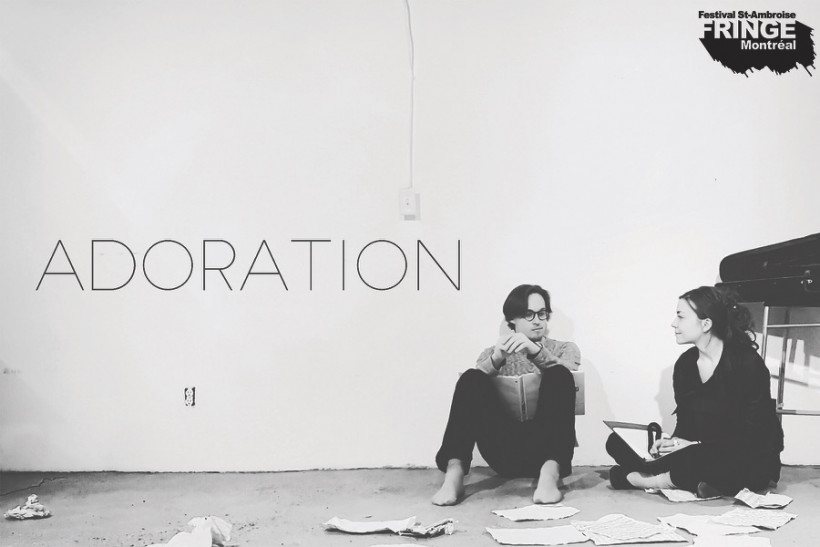What’s left to Love? A review of Tantalus’ Adoration at the Fringe Theatre Festival
Upon finding my seat in Mainline’s intimate theatre and taking in the set, I felt as though I had found myself inside the mind of the artist. Loose sheet music covered the floor and musical measures were broken up along the back wall.
The chaos of the mess created a familiar image, that of the mad and messy creative. This was contrasted sharply by the order that the sheet music represented.
The pre-show music was played by a live solo violinist, Violette Kay, who bounced between various sheets on the floor and played them as she saw fit. Kay was the source of all the music in the show, as well as Adoration’s playwright.
In Adoration, two former violin students reconnect after the suicide of their mentor, Konstantin Treplev. Though what was unexpected of this play was how little of the content actually covers Konstantin’s death or discusses suicide at all.
It felt as though the focus was instead shifted on why the students cared he was gone, how the music made up their lives and what could one use as a barometer for success or failure. This is not to say that Konstantin’s death was trivialized, but simply that the music that composed his life was of a much greater importance, as one could clearly see the ripples of influence in the lives of those around him.
Skyler Clark and Nils Svensson-Carell both excelled as the young prodigal students trapped in a real world. Vanessa Ashley-Schmoelz and Nick Fontaine contrasted each other perfectly, as two instructors with differing approaches and priorities.
Adoration’s sound design was done by Kate Babin and recorded by sound engineer Bradley Tanguay, who both lived up to a play based around musicians and an adoration of sound. The newly composed variations of Borowski’s Adoration have been uploaded for streaming at tantalusmtl.bandcamp.com
Adoration wrestled with the costs and benefits of bringing passion into the professional sphere, showing both the sublime love and purpose these artists felt as well as their despair and doubt.
Refreshingly real and not overtly cynical, the characters of Adoration held one common thread over all of their quirks and difficulties, and that was the idea that music must be lived up to, and not brought down.




_600_375_90_s_c1.jpg)

_600_375_90_s_c1.jpg)
